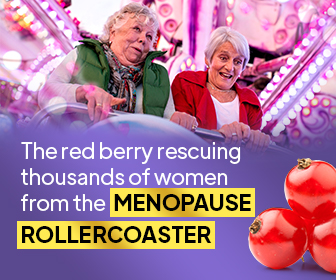Do you know anyone who has lived to be 100 years old? Living to 100 is easier than you think if you know how! In this day and age, the chances of knowing someone who has lived to 100 are getting better and better. But could it be you?
We are getting better educated on how to live longer, better, healthier, and happier lives. Modern science discovers and provides us with the newest knowledge, methods, ways, and means to continue living to 100 or longer, and to enjoy ourselves while doing it! What’s more knowledge about anti-aging is freely available if you know where to look.
Below, we have all of that info for you. From scientific research and secrets from those who know, to pro tips that can help you to live a longer healthier life, we have compiled everything you need to know about living to 100. Whether it’s foods to eat, the best types of exercise, things to do with your friends and family, or maintaining connections to your community and the world around you, we’re here to help you learn how to live a long healthy life — and maybe living to 100 or more!
What Are the Chances of Living to 100?
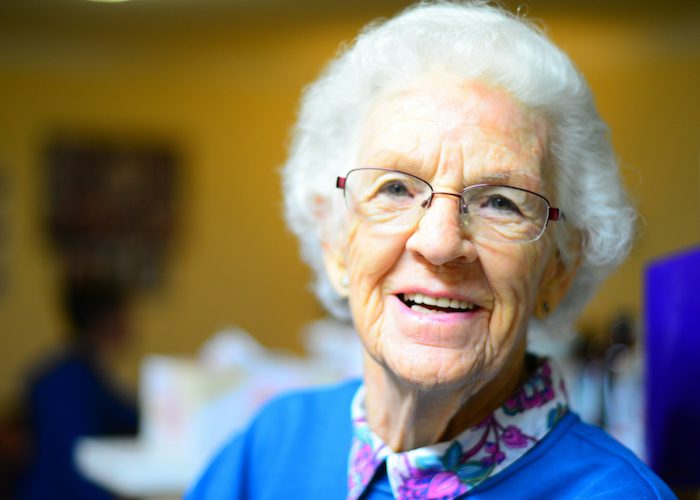
So, who really lives to be 100? You‘re probably thinking, “It couldn’t possibly be me. I‘m just a regular person.” Well, living to 100 isn‘t as hard as it used to be, and we are all living longer and better lives than just two generations ago.
In 1776, the lifespan of the average person in England was 35. In the early Colony of Virginia of 1776? Age 25. Our life expectancy has almost doubled in the past century alone and increased by over 300% since 1776!
According to the research, one in three of today‘s babies will be living to 100.[1] And, we must realize that in the next two or three decades, those numbers will improve. Thus, living to 100 is most certainly not impossible.
Here are some current stats on life expectancy in the United States:
- 2016[2]
Men: 76.1 years | Women: 81.1 years - 1980[3]
Men: 70.0 years | Women: 77.4 years - 1950[4]
Men: 65.6 years | Women: 71.1 years - 1920[5]
Men: 53.6 years | Women: 54.6 years - 1900[6]
Men: 46.3 years | Women: 48.3 years
These statistics do often include infant mortality rates in the average, as opposed to actual life spans. So, in reality, our lifespans may not have increased quite as much as these statistics, just that on average more and more of us simply make it through infancy alive.[7]
Why are more and more people living to 100?
We’ve seen the research and statistics, and it’s a fact that people are living increasingly longer lives. But why is that? Let’s take a look at some of the reasons contributing to our increased longevity.
1. We face less imminent dangers in everyday life

The causes of death in the olden days were very different. When dealing with 6 months at sea on the way from Europe to populate the new world, making it to the other side might have been more difficult. Or, for instance, heading westward through the Rocky Mountains in a covered wagon caravan on the quest to find gold was also more difficult to live through.
2. We have a much easier lifestyle

We have a much easier lifestyle these days, full of comforts, compared to our ancestors just two or three generations ago. With modern comforts, heating and air conditioning, food on demand, good healthcare, it’s no wonder that we are winning at living a long healthy life as compared to our ancestors.
3. Medicine and technology

Medical advancements help us live longer lives. With new vaccinations, medications like antibiotics, and technology like pacemakers, transfusions, transplants, and prosthetics, we have more resources to keep us in good health.
Additionally, technology gives us access to more information than ever before to help us figure out how to live a long healthy life. By doing a quick Google search, you’ll know that overly processed foods, additives, and preservatives are not good for you and that you should be consuming more fresh, organic whole foods instead.
4. Healthy food

While our ancestors had to deal with potato famines, poor harvests, and bad winters or summers, these crises no longer affect the majority of us anymore. We definitely don‘t have to work as hard as our ancestors to access to fresh foods. Head down to your local grocery store or supermarket and the shelves are readily stocked with fresh fruits and vegetables. Street markets or wet markets even give you the option of getting produce straight from farmers themselves. Healthy fresh foods are readily available.
Venture to the next section to find out some of the secrets revealed by science on living to 100, and later, some tips from those who have already made it.
The Secrets to Living to 100
Believe it or not, living to 100 is feasible. Does that sound too good to be true, or like you have to make a deal with the devil to attain it? Well, it isn’t, and you certainly don’t need to sell your soul to get it! There are hundreds of studies on longevity, and, in particular, on “centenarians” (the term for people who live to 100). These studies span decades of people’s lives to help us better understand who, how, and why some of us live to 100, but others don‘t.
Here are some secrets discovered from research on centenarians and longevity studies to help you on your quest to living to 100.
1. Modern advances

To start, science says that there are no upper limits to human longevity.[8] According to the research, there are new tools that can help us live long healthy lives. For example, technology, medical interventions, and improvements in living conditions could all push back the upper limit of longevity in the future.[9] In particular, in the middle of the 1900s, medical interventions like the discovery of antibiotics and vaccines against smallpox and polio greatly increased our potential of living to 100.
But, this does not mean that we have the potential to live forever. But, we do have the potential to continue the upward trend towards living longer than ever before in recorded history. Thus, more of us can live a long healthy life into our 80s or 90s, or living to 100 and beyond. And, further, more of us can also live as “super-centenarians,” who live to be 110, 115, or older.
Fun Fact: Studies have shown the occasional indulgence could help you live longer.[10] In fact, a 108-year-old woman from St. Louis eats a bowl of Neopolitan ice cream every night before bed.[11] If it’s good enough for her, it’s good enough for us!
2. Genes

While the future is bright with the possibility of living longer and healthier lives, some of our advantages come from our genes.[12] Most of us have at least one relative who has lived past the life expectancy for their times and may have lived well into their 80s or even 90s. So, we may all have a good chance, genetically speaking, to live a long healthy life.
However, this is in contrast with genetic, age-related diseases and traits. In particular, the research points to diseases like Alzheimer‘s disease and coronary artery disease as examples of hereditary conditions that may preclude some of us from living to 100.[13]
And, in these cases, we have to rely on the future, and the potential of advances in technology and medicine to see whether or not we can outlive those genes, to live a long healthy life.
3. Mental well-being
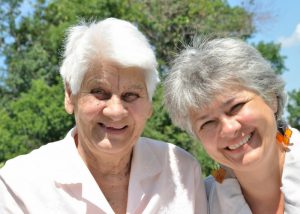
The notion of longevity automatically includes the notion of good health and mental wellness. The idea of living to 100 implies that we did not live life with sickness and disease, or that our life was not cut short. Instead, we lived a full life to a ripe old age. That is something that we all want for ourselves and for our loved ones.
The world of science is built on helping us to do just that. In fact, three university research labs on longevity recently won grants for millions of dollars for research on aging and mental well-being.[14] Specifically, the grants study mental aging in the brain, not just to prevent and cure diseases like Alzheimer‘s, but also to research the effects of learning new things as we age, and whether mental challenges can actually keep us young.[15]
Fun Fact: Having positive self-perceptions can help you live up to 7.5 years longer.[16]
Research on mental well-being and aging is not new. Studies on dementia, cognitive function, and mental lucidity form the bases of studies on living a long healthy life and avoiding the worst sicknesses that can accompany old age.
However, modern scientists are exploring the idea that keeping an active mind can actually deter the onset of Alzheimer’s and dementia. Additionally, mental challenges and stimulation create new connections between nerve cells and may even help the brain generate new cells.[17] This type of ongoing mental stimulation builds neurological plasticity and helps hedge future cell loss.[18]
The best type of mental stimulus is reading, taking courses, and doing math or word puzzles. Learning a new language or art are also among the best ways to keep your brain active into old age and living to 100.
4. Physical fitness

Aging often affects our bodies more than our minds. Statistics show that up to 80% of the population over age 90 is disabled.[19] So how do we make it into the minority at that age? That is what science attempts to discover so we can adopt new habits as able-bodied seniors living to 100.
How do we extend the natural health and well-being of our physical bodies? Absent deep-freezing ourselves with cryogenics, scientists have discovered that physical exercise helps not only our bodies, but our brains too.
Being physically active in our golden years helps us to get oxygen to our muscles and our brains.[20] Thus, we can stay fit, reduce stress, and protect our bones with healthy and lean muscle mass.
Additionally, studies show that exercise also lowers blood pressure, improves cholesterol levels, helps blood sugar balance and reduces mental stress. All of which can help our brains as well as our hearts.[21]
5. Gender

It is a well-documented fact that women live longer than men. On average, women live about seven years longer than men.[22] This occurs in most industrialized nations among humans. Studies explain that the cause of this global phenomenon is because of stressors and behaviors that were more atypically male: smoking, drinking, and working outside the home.[23] There are other potential factors, too, including less iron in the blood, slower metabolism and even chromosomal differences in the gene cells that contribute to women outliving men.
Despite this fact, the gender gap is closing and men are now also living longer lives.[24] And, many men do live to 100 and beyond!
6. Location

Did you know that where you live could possibly determine if you live to 100? Blue Zones are places in the world where most people live to 100 and beyond. There are five Blue Zones in the world:
– Loma Linda, California
– Ikaria, Greece
– Sardinia, Italy
– Nicoya Peninsula, Costa Rica
– Okinawa, Japan
Each of these zones has a different lifestyle and community from each other and from the rest of the world, yet each of them shares this strange commonality of having the highest concentration of centenarians than anywhere else in the world.
Scientists have pored over the facts from each location to try to identify whether there is anything that they share as to why their communities live to 100. They found that people in the Blue Zones have social support and engagement, daily exercise, and a diet that is rich in plants.[25]
7. Positivity

Positive self-perceptions can actually help you live longer. In fact, it can help you live up to 7.5 years longer.[26]
One study examined age stereotypes and divided subjects into two categories based on these stereotypes, wise versus senile. The wise stereotype leads to enhancement while the senile stereotype leads to decline. Most notable was that for each change of one point in the positive self-perceptions of aging, the risk of dying decreased by 13%.[27] The study found that the more positive the self-perceptions of aging, the greater the will to live.[28]
Thus, the goal is to encourage older individuals to monitor the ways they are targeted by others, and the ways they target themselves in terms of positive perceptions. This way, we can maintain a great outlook on our own lives and the will to live a long healthy life, possibly to 100 years old.
8. Indulgence

Many centenarians believe the key to living a long life is actually by living to the fullest and enjoying your life. One super-centenarian, in particular, a 108-year-old woman from St. Louis eats a bowl of Neopolitan ice cream every night before bed.[29]
While ice cream may not be the answer for everyone, indulgence is scientifically proven to help us live to 100. One study of 7,841 male students at Harvard who entered as freshmen between 1916 and 1950 showed that consumption of candy was associated with greater longevity.[30] Specifically, according to this study, chocolate is the best candy to consume, as opposed to sugar candy, due to the phenols in chocolate, which are antioxidants that boost the immune system.
The thing to remember when enjoying your indulgences is that the whole point of an indulgence is that it is a treat more than a regular extravagance. According to the research, an indulgence that is consumed 1-3 times a month adds years of life. In contrast, the habit of consuming an indulgence three or more times a week revealed the opposite: those participants were among the highest mortality rate.[31]
The most noteworthy point, however, is that the study showed that the highest mortality rate was among those who never indulged at all.[32] So, go ahead and indulge in your favorite dessert once in a while. Just don’t overdo it.
Now that we understand a little bit behind the science of living to 100, here are some tips on how to actually get there.
Lessons From Living To 100
There are enough centenarians living in the world today to share their secrets and wisdom about how to live a long healthy life. And every one of them has some wisdom to impart. So, while living to 100 is a bit of a mystery, here are some of our favorite quotes, tips, and secrets from everyday people who lived to 100 and beyond.[33], [34], [35]
- “Don‘t ever give up on love.”
- “Do one thing each day that is just for you.”
- “Do something interesting every day; otherwise you disintegrate.”
- “Sleep well, try not to worry, and enjoy good dreams.”
- “Forgive.”
- “Find your passion and live it.”
- “Never run out of responsibility. If you don‘t have one, find one. It will enhance your brain power, your interest in life, and keep you alive longer.”
- “The important thing is to learn to accept your limitations and not fight them.”
- “Most of the time, things will figure themselves out.”
- “Learn to adapt.”
- “Take time to mourn what you’ve lost.”
- “Age is not a disease.”
- “Make yourself walk.”
- “Pain is mysterious and having fun is one of the best ways to forget it.”
- “My 80s were the best years of my life!”
- “Don’t die too early.”
Top 5 Tips on How To Live To 100
Quite a few centenarians are living among us, some of whom you may already be familiar with. For example, Kirk Douglas was born December 9, 1916. David Rockefeller and the queen mother, Elizabeth Bowes-Lyon both lived to be 101. Bob Hope and George Burns both lived to be 100, and Olivia de Havilland lived to be 102. And, author Beverly Cleary is still alive at 102 years old! So, what do you think are (or were) their secrets?
1. Maintain a healthy lifestyle

Lifestyle encompasses our choices, and things like education, housing, physical activities, food, drinking and smoking habits, clothing, medical interventions, cultural and religious beliefs, and social networks all contribute to our lifestyle and its impact on our longevity.[36] In other words, our daily routines and habits, and whether we respect and listen to our bodies‘ needs, are all helpful to living to 100.
Take a look at the list below for some ideas on what you can do to activate your mind and body, and get your family and friends in on the action, too.
- Attend a painting class
- Join a yoga class at your local Y or community center
- Learn to play an instrument or study a new language
- Invest in a class to learn about the stock market
- Take a cooking class
2. Exercise, exercise, exercise!
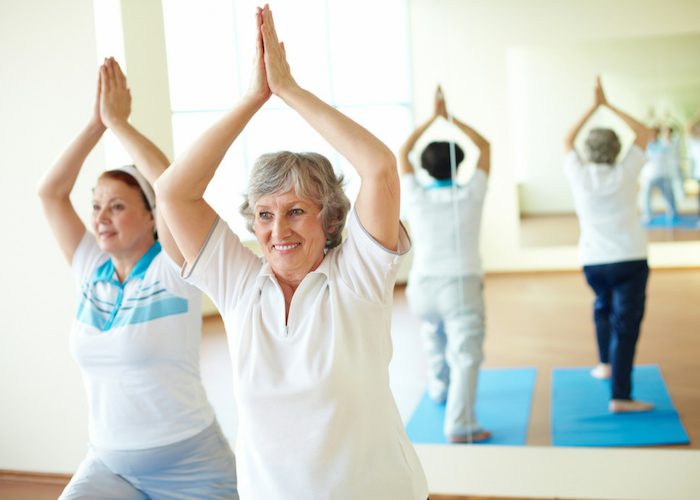
We all know that physical activity is important to living a long healthy life. But how do we determine if we are doing enough? Doing a hand grip test at middle age could be a strong indicator of your lifespan.[37] If you cannot utilize our grip strength competitively at middle age, you should consider this as an opportunity for early intervention.[38]
Specifically, the goal is to slow down the decline in your muscle strength to prevent future weakness and disability.[39] Some symptoms of declining muscle strength include pronounced weight loss, becoming physically sedentary, persistent smoking, cardiovascular disease, hypertension, and asthma.[40] So, your hand grip strength is associated with your future ability to prevent the weakening or decline of your muscle groups and movements.
Some of the best exercises are listed below as a guide to help you strengthen your muscles and increase your chances of living to 100![41] Be sure to consult your doctor before you jump into a new exercise regimen to ensure that it is the right exercise for you.
- Swimming
- Tai chi
- Walking
- Yoga
- Meditation
- Jumping rope
- Interval training
- Running
3. Eat a healthy diet
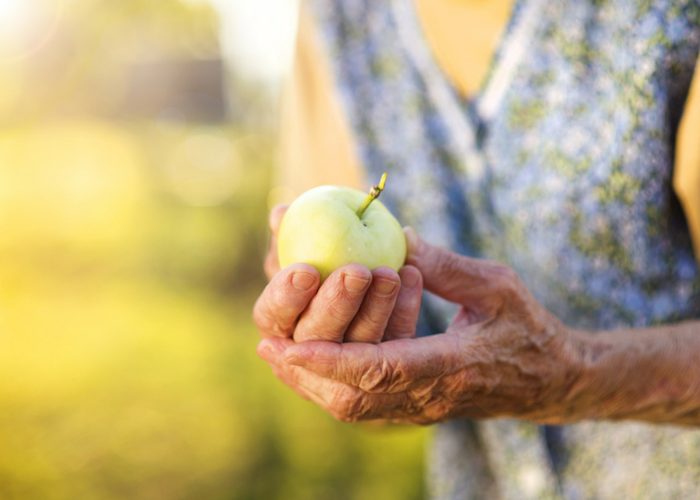
Try to incorporate more fresh or raw vegetables into your diet. You can:
- Eat a diet that is 60/40 vegetables. Your plate should have about 2/3 vegetables and the remaining 1/3 meat and grains.
- Try being a vegetarian one day per week. You‘d be surprised at how tasty and satisfying vegetarians meals can be! And there are so many different international recipes to choose from, using all the same ingredients you have at home.
- Chop up your fruits, so they’re ready to eat. Store your freshly chopped fruits in a container in the fridge, so they’re ready to eat for dessert, for a snack, or to include in your morning smoothie.
- Drink less caffeine and sugary drinks. Replace your usual soda and coffee with a cup of green tea with honey, and serve it with ice and a sprig of mint during the summer!
- Dine with company. Studies show that we eat less when we share our meals with someone, so dine out or invite friends over for company!
4. Implement secrets from the Blue Zones

Each Blue Zone has a particular practice that sets them apart from the others and which possibly helps contribute to their longevity. Let’s take a look at their secrets:
Consume more goat or sheep’s milk
Residents of Sardinia in Italy consume more goat and sheep’s milk than they do of cows. This could be an attributing factor to the longevity of the people living there. Goat’s milk has also been shown to prevent demineralization of bones for fewer fractures and breaks as we age.[42]
- Try a new sheep’s or goat’s milk cheese and use it in a salad or on wholegrain toast.
- Look for other dairy products like goat’s or sheep’s milk yogurt or butter, and give those a try for something new in your diet. Add the butter to air-popped popcorn!
Eat fish regularly
The inhabitants of the community in Loma Linda, California, are pescatarians, so they eat a fish-based diet. A diet that consumes fish twice a week is higher in omega-3 fatty acids, vitamin D, minerals, and lightweight protein.[43] Nutrient-dense foods in a lightweight protein will give your body what it needs without extra fat or calories.
- Try cooking fish on the grill by making tinfoil packets with a sprinkle of olive oil, lemon wedges, and flavorful veggies like tomatoes, onions, and bell peppers.
- Instead of pasta sauce that uses beef, consider using shellfish as an alternative in a white wine and garlic sauce. You can serve this sauce over vegetables, too!
Eat until you are only 80% full
In Okinawa, they practice this habit of eating only until you are 80% full (hara hachi bu).[44] Because food takes about 20 minutes to digest, you will feel 100% full 20 minutes after you stop eating. Thus, you won’t overeat, lessening your risks of obesity and other related health risks, and increasing your chances of living to 100.
- Try putting your fork down in between bites so you can eat more slowly.
- The slower you eat, the more time your body had to tell you it‘s full.
- Enjoy each bite of food and take your time chewing it. Relax while you eat.
Cut out processed food
In Ikaria, Greece, the inhabitants eat everything from their own farms and gardens, and consume no processed or packaged foods.
- Try meal-planning or setting aside one day a week to portion out lots of healthy foods. You can pre-make salads in daily containers to grab and go, to help maintain balance in your hectic day.
- Don’t forget to plan your snacks, and portion them out ahead of time, so you don‘t overeat or plan when you’re hungry! Nuts, fruit, veggies, and yogurt all make great snacks.
Include eggs in your diet
In the Nicoya Peninsula, its inhabitants eat one egg per day, which can be a substitute for other types of meat. Eggs are rich in omega-3 fatty acids, which promote brain health and reduce the risk of heart disease.[45]
- Eggs can be used in many different recipes if you don’t like them on their own. Try quiches or incorporate them into a spinach salad for a satisfying meal.
- You can also add an egg or two to soup to thicken it without changing the soup’s flavor while enhancing its protein and nutritional value.
5. Prevent illness
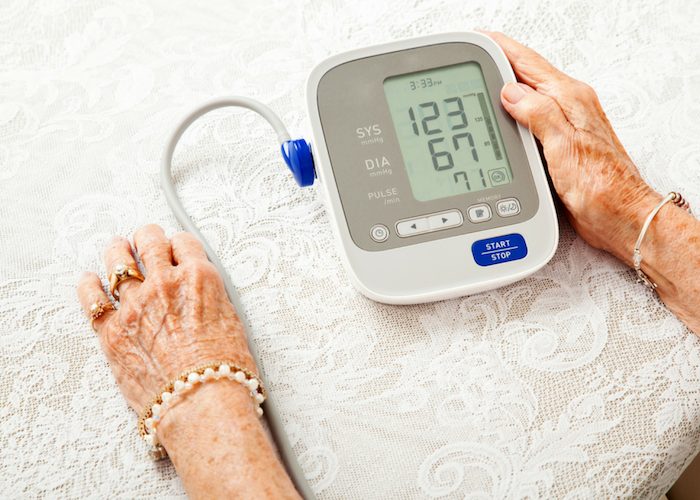
Believe it or not, sometimes just the very maintenance of good health is all we need to live to 100. Science says that prevention and avoiding sickness are the best ways for us to live to 100.[46] In particular, you should rely on both nutritional and pharmaceutical assistance to preserve your good health and well-being every day.[47] Preventative health slows down sickness, reduces the distress it causes, minimizes disability, and ultimately, prolongs death.[48]
Keep your doctor’s phone number on speed dial for advice and remedies for any and all issues whenever they first appear. Remember that an ounce of prevention is worth a pound of cure. Follow these simple tips to help prevent unnecessary illness:
- Avoid and neutralize stress[49]
- Practice personal hygiene and keep your hands clean
- Exercise at least three times a week for 30 minutes each session
- Eat fewer high-fat snacks and eat more natural foods[50]
- Natural herbs and vitamins to help boost your immune system
- Go for regular health screenings and checkups
- Adhere to your doctor’s orders[51]

Conclusion
Longevity and living to 100 is obtainable. There are no preset factors that determine who can or who will, and with a few tips like these, we can each determine how to live long healthy lives. A little knowledge and helpful information can go a very long way!
References
- [1] https://www.ons.gov.uk/peoplepopulationandcommunity/birthsdeathsandmarriages/lifeexpectancies/articles/whatareyourchancesoflivingto100/2016-01-14
- [2] https://www.cdc.gov/nchs/fastats/life-expectancy.htm
- [3] CDC. https://www.cdc.gov/nchs/hus/contents2017.htm?search=Life_expectancy,
- [4] http://www.demog.berkeley.edu/~andrew/1918/figure2.html
- [5] http://www.demog.berkeley.edu/~andrew/1918/figure2.html
- [6] Berkeley. http://www.demog.berkeley.edu/~andrew/1918/figure2.html
- [7] https://www.livescience.com/10569-human-lifespans-constant-2-000-years.html
- [8] https://www.sciencedaily.com/releases/2017/06/170628131500.htm
- [9] Science Daily. https://www.sciencedaily.com/releases/2017/06/170628131500.htm
- [10] http://faculty.washington.edu/andchien/PDFs/candy.pdf
- [11] https://www.huffingtonpost.com/entry/108-year-olds-secret-to-longevity-might-be-in-a-bowl-of-ice-cream_us_56253e17e4b08589ef485835
- [12]PLOS. https://journals.plos.org/plosgenetics/article?id=10.1371/journal.pgen.1005728
- [13] https://journals.plos.org/plosgenetics/article?id=10.1371/journal.pgen.1005728
- [14] https://www.utdallas.edu/news/research/center-for-vital-longevity-teams-receive-5-million-for-aging-studies/
- [15] UT Dallas. https://www.utdallas.edu/news/research/center-for-vital-longevity-teams-receive-5-million-for-aging-studies/
- [16] https://www.researchgate.net/profile/Becca_Levy/publication/11232977_Longevity_Increased_by_Positive_Self-Perceptions_of_Aging/links/02e7e5220cd55695d3000000.pdf
- [17] https://www.health.harvard.edu/mind-and-mood/12-ways-to-keep-your-brain-young
- [18] Harvard Health Publishing. https://www.health.harvard.edu/mind-and-mood/12-ways-to-keep-your-brain-young
- [19] http://www.mind.uci.edu/research-studies/90plus-study/
- [20] https://www.health.harvard.edu/mind-and-mood/12-ways-to-keep-your-brain-young
- [21] Harvard Health Publishing. https://www.health.harvard.edu/mind-and-mood/12-ways-to-keep-your-brain-young
- [22] https://www.researchgate.net/profile/Jerry_Shay/publication/7798868_The_Longevity_Gender_Gap_Are_Telomeres_the_Explanation/links/55b3b6e608aed621de010f02.pdf
- [23] https://www.researchgate.net/publication/248446318_Why_Women_Live_Longer_Than_Men
- [24] Perls, Tom & Fretts, Ruth. https://www.researchgate.net/publication/248446318_Why_Women_Live_Longer_Than_Men
- [25] https://www.ncbi.nlm.nih.gov/pubmed/24210636
- [26] https://www.researchgate.net/profile/Becca_Levy/publication/11232977_Longevity_Increased_by_Positive_Self-Perceptions_of_Aging/links/02e7e5220cd55695d3000000.pdf
- [27] Journal of Personality and Social Psychology. https://www.researchgate.net/profile/Becca_Levy/publication/11232977_Longevity_Increased_by_Positive_Self-Perceptions_of_Aging/links/02e7e5220cd55695d3000000.pdf
- [28] https://www.researchgate.net/profile/Becca_Levy/publication/11232977_Longevity_Increased_by_Positive_Self-Perceptions_of_Aging/links/02e7e5220cd55695d3000000.pdf
- [29] https://www.huffingtonpost.com/entry/108-year-olds-secret-to-longevity-might-be-in-a-bowl-of-ice-cream_us_56253e17e4b08589ef485835
- [30] BMJ. http://faculty.washington.edu/andchien/PDFs/candy.pdf
- [31] http://faculty.washington.edu/andchien/PDFs/candy.pdf
- [32] BMJ. http://faculty.washington.edu/andchien/PDFs/candy.pdf
- [33] http://mentalfloss.com/article/54286/100-pieces-advice-100-year-olds
- [34] https://spryliving.com/articles/25-inspiring-quotes-from-extraordinary-centenarians/
- [35] Woman’s World. https://www.womansworld.com/posts/centenarians-life-lessons-123813
- [36] https://www.ncbi.nlm.nih.gov/pmc/articles/PMC4745363/
- [37] https://onlinelibrary.wiley.com/doi/full/10.1111/j.1532-5415.2011.03779.x
- [38] Journal of the American Geriatrics Society. https://onlinelibrary.wiley.com/doi/full/10.1111/j.1532-5415.2011.03779.x
- [39] https://onlinelibrary.wiley.com/doi/full/10.1111/j.1532-5415.2011.03779.x
- [40] https://onlinelibrary.wiley.com/doi/full/10.1111/j.1532-5415.2011.03779.x
- [41] Harvard Health Publishing. https://www.health.harvard.edu/staying-healthy/5-of-the-best-exercises-you-can-ever-do
- [42] https://www.sciencedaily.com/releases/2007/07/070730100229.htm
- [43] https://www.ncbi.nlm.nih.gov/pmc/articles/PMC4776937/
- [44] NCBI. https://www.ncbi.nlm.nih.gov/pmc/articles/PMC5247583/
- [45] https://www.ncbi.nlm.nih.gov/pmc/articles/PMC5415167/
- [46] https://www.ncbi.nlm.nih.gov/pmc/articles/PMC3031942/
- [47] NCBI. https://www.ncbi.nlm.nih.gov/pmc/articles/PMC4745363/
- [48] https://www.ncbi.nlm.nih.gov/pmc/articles/PMC3031942/
- [49] http://psycnet.apa.org/record/2012-33785-001
- [50] Oxford Academic. https://academic.oup.com/abm/article-abstract/37/2/184/4565844
- [51] http://psycnet.apa.org/record/2011-10387-001


